Year-in-Review: CHHSM Board Examines Work on Race, Diversity, Equity, and Inclusion with Eye on Future Actions
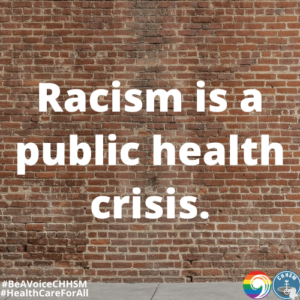
The CHHSM Board of Directors, meeting online June 7-9, focused a large portion of its meeting reviewing the commitments made by the Board, staff, and members in the June 2020 statement on the pandemic of systemic racism. At the top of the list was the final report of the organization’s recently completed Race, Diversity, Equity, and Inclusion (RDEI) Assessment.
“Following the death of George Floyd, the CHHSM Board and its staff committed to the Race, Diversity, Equity and Inclusion (RDEI) process. We began our efforts a year ago by suspending the CHHSM Board agenda and giving much-needed time and attention to the clarion call for Black lives to matter in America,” said Board member the Rev. Dr. Sheila Harvey Guillaume, senior pastor of Union Congregational UCC in West Palm Beach, Fla. “At the time, my son was 10 years old, and I found myself in tears during the Board meeting over the possibility of systemic racism taking the life of my sun-kissed son, the way it took the life of George Floyd and so many others.”
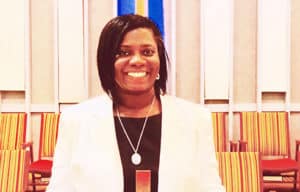
Sheila Harvey Guillaume
To conduct the assessment, CHHSM engaged the Equius Group. The assessment report presented to the Board first identified assets and barriers to move forward with race, equity, diversity and inclusion work. Based on those assets and barriers, it then enumerated 17 recommendations for moving forward, which fall into five general categories: internal capacity building, member engagement, growing the CHHSM footprint, nurturing RDEI work in member ministries, and growing board capacity.
“Working with the Equius Group the past nine months has been extremely energizing,” said the Rev. George Graham, CHHSM vice president. “The assessment makes really helpful recommendations that should guide us in moving forward with RDEI work the next several years. I look forward to working with the staff team and the board as we develop a concrete plan that will provide a map toward racial equity and inclusion, as well as keep us accountable on our way.”
Following the RDEI report presentation, the board members participated in a generative session, geared toward beginning to digest the recommendations and move toward establishing RDEI goals, objectives, and an action plan. In the coming months, work in committees and additional board sessions will finalize priorities and the action plan.
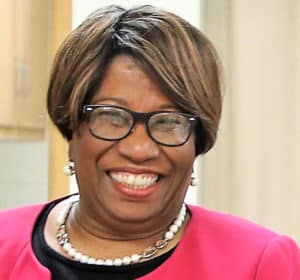
“Heartfelt conversations in the generative session focused on how to take action on the recommendations to embed a culture of RDEI in CHHSM for years to come,” said the Rev. Dr. Monica Dawkins-Smith, CHHSM Board member and executive associate for the UCC’s Wider Church Ministries and Operations. “Repeated commitments, both individual and collective, echoed in support of leveraging CHHSM to lead the way through modeling racial, diversity, equity, and inclusion efforts and providing related resources for CHHSM member organizations, UCC conferences, churches, and others on the RDEI journey.”
During the meeting, the board also assessed progress made on the commitments promised in CHHSM’s statement on the pandemic of systemic racism. One of the first accomplishments made by the CHHSM board was the release of grants to organizations working to end systemic racism. The $3,000 grants, approved at the Fall 2020 board meeting, were awarded to the Grassroots Law Project, Ohio Poor People’s Campaign, The Bail Project, the Overdose and Drug Use Ministries of the United Church of Christ, and the New Ballet Ensemble in Memphis.

Additionally, a new Racial Equity and Inclusion Fund — created to support groups battling systemic racism — garnered $2,550 in donations during CHHSM’s virtual Annual Gathering in March.
“Reflecting upon our most recent CHHSM Board meeting, two words come to mind: generative and gratitude,” said Board member the Rev. Leslie Jackson, pastor of St. Peter United in Houston. “Generative because we didn’t just review the RDEI Assessment, we generated actionable steps to embolden the work CHHSM is already doing regarding anti-racism and advocacy for issues that affect so many of the clients we serve. Gratitude because I am so thankful to serve on the board with leaders who can actively engage in transformative conversations beyond assets and liabilities.”
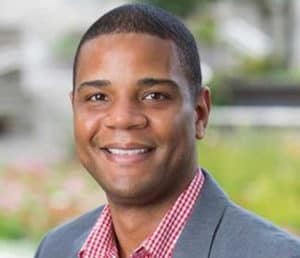
During the past year, CHHSM board and staff took seriously the statement’s pledge to live out their commitments to racial equity personally, in their communities, and organizationally. Staff and board members participated in a number of trainings and activities, including the YWCA 21-Day Racial Equity and Social Justice Challenge.
The statement also promised new resources for individuals, local churches, and organizations to use in becoming anti-racist. To that end, CHHSM rolled out a new Anti-Racism Center on its website, which includes a rich selection of resources — books, articles, poems, podcasts, and videos — that offer grounding for racial equity work. The voices heard in the plethora of resources include movement leaders, CHHSM member ministries, and leaders from the UCC and other nonprofits and justice movements.
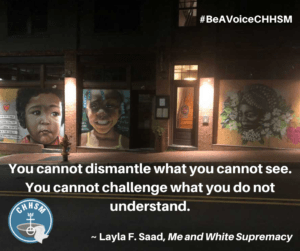
“A more just, caring, and compassion world cannot exist while white supremacy, racism, and anti-blackness continue to dominate policies, organizations, faith communities, culture, beliefs, and daily life,” said the Rev Dr. Elyse Berry, CHHSM’s associate for advocacy and leadership development, who compiled the center’s materials. “Christ preached a message of liberation, lived a life of interconnectedness, and died by state-sanctioned violence for doing so. But Christ shows us that violence does not have the final say, and calls us to the deeply spiritual work of reckoning, repair, and recreating. To be a disciple is to be anti-racist.”
The center provides resources for reflection as well as materials to support action. Areas covered include how to begin dismantling white supremacy in the workplace and in employee and employer policies. Resources help users make the connection between systemic racism and such social inequities as poverty, food injustice, disability injustice, housing, and gender discrimination.
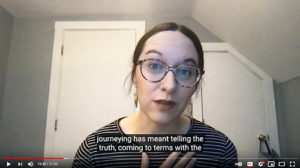
One of the most popular new initiatives born of the CHHSM statement is the “Together We Learn Book Group.” To date, the group — whose membership is flexible and open to all — has studied Becoming Anti-Racist by Ibram X. Kendi and Native by Kaitlin B. Curtice, one of the keynote speakers at this year’s Annual Gathering.
“It was great to read a book by an author that had offered a keynote speech at the Annual Gathering,” said Graham. “She found a way to discuss the church’s complicity in racism, but did it in a way that offered hope for change. I feel enriched by the book group discussions — hearing the ways that people grapple with issue of racism and oppression as well as the ways in which they are working for change in themselves, their organizations, and communities. It makes me glad that CHHSM is offering this kind of opportunity for mutual sharing and learning.”
For many book group participants, the conversations were the highlight of reading the books. “Every time we gathered to discuss our reading, I was deeply impacted,” said Liz Bergren, development director for Crossroad Child & Family Services in Fort Wayne, Ind. “I have so appreciated hearing others voice their own experiences of understanding racism and battling bias: it gave me hope.”
Bruce Roller, executive director of United Church Outreach Ministry in Wyoming, Mich., found many ways to apply his experience in the Native book discussion to his ministry. The book and discussion group “helped connect me to the vast assets, deep thoughts, trauma and resilience of the people among whom UCOM and I serve [and] gives me a stronger appreciation of my neighbors. It levels the field for better, more equal relationships.”
Plans are underway for the next title to be discussed by the group.
The work to become anti-racist, begun by the statement on the pandemic of systemic racism, continues. This summer, CHHSM — in conjunction with the UCC Council on Racial and Ethnic Ministries — is bringing a resolution of witness to the UCC’s General Synod, calling on racism to be declared a public health emergency.
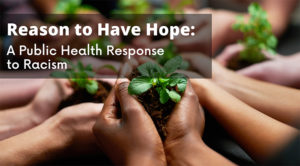
To supplement that resolution, and to fulfill CHHSM’s promise to create resources to help all UCC settings combat systemic racism, CHHSM is releasing “Reason to Have Hope: A Public Health Response to Racism.” The multi-part, online, interactive course was created by Berry and includes historical and current information on systemic racism as well as a strong theological perspective. The chapters are interspersed with prayer pauses, and include reading material, podcasts and/or videos on specific topics, and sections on hope for the future, which highlight success stories. Participants will be invited to engage with any of the articles, videos, or podcast episodes in a given lesson. It will be released before this summer’s General Synod.
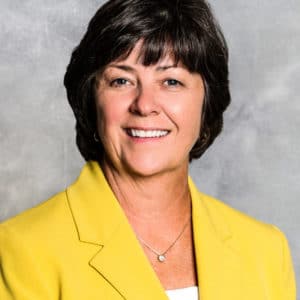
Following the meeting, Board Chair Abbreial Drane, president and CEO of Bellewood and Brooklawn and Seven Counties Services, looked to the future. “The CHHSM Board just adjourned its June meeting, and what a year it has been,” she said. “Leaning on our faith, strengthened by what we know is right and moving toward our future, we are committed to justice, fairness, equity and anti-racism as we build a better future for all CHHSM members and the people we serve.”
As the Board meeting concluded, Dawkins-Smith heard other Board members remarking that the meeting had left them feeling motivated, and describing the meeting and future work of CHHSM as life changing, possibly world changing, hopeful, aspirational and encouraging. “Recommendations from the audit and the ongoing work of the CHHSM staff in creating resources for dismantling systemic racism were met with deep appreciation by the Board,” she said.
“The statement on the pandemic of systemic racism publicly declared CHHSM’s stance and commitment to working together to eradicate this pandemic,” added Michael J. Readinger, CHHSM president and CEO. “We’ve spent the past year making the first steps of our larger vision of creating a more just, caring and compassionate world. But we acknowledge that there is much work still ahead of us. We look forward to working with our UCC and health care partners in creating an anti-racist future for all.”
Harvey Guillaume reflected on how best to carry on CHHSM’s work as both Board member and local church pastor. “CHHSM’s Board and staff commitment to RDEI this past year will bless its members organizations and its UCC partners,” she said. “As a local church pastor, I plan to inform my congregation about the General Synod resolution, along with the collaborative RDEI curriculum.”
But perhaps the meeting and the past year of making inroads was reflected best by Jackson. “Every week, in many of our churches, we pray these powerful words in the Lord’s Prayer: ‘Thy will be done on Earth as it is in heaven,’” he said. “Is that what we really want? Are we bold enough? Are we courageous enough? Our CHHSM Board meeting gave me hope that the answer to those questions is yes.”
Join Our Mailing LIst
"*" indicates required fields
Follow on Facebook
Denise Buck to Succeed Campbell as IFM CEO - CHHSM
www.chhsm.org
As IFM Community Medicine (IFM) Founder and CEO David Campbell M.D. plans to retire mid-year, his successor, Denise Buck M.D., has started working full-time with IFM in St. Louis. Before assuming this...